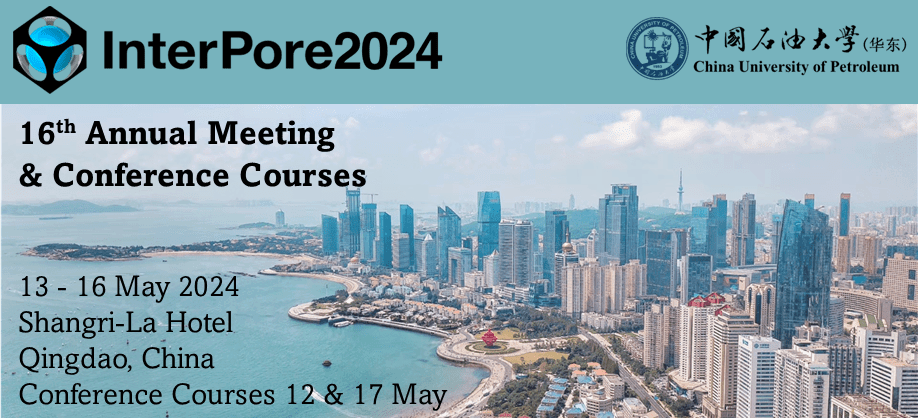Speaker
Description
The depth of deep shale gas reservoir is greater than 3500m, the initial liquid production of gas well is large and the flowback rate is high, accounting for the complex gas-water two-phase transport behavior. Besides, due to the characteristics of high pressure and stress in deep shale gas reservoir, the existing transport simulation method is no longer applicable. In this work, a hydro-mechanical coupling simulation method of gas-water two-phase transport in deep shale gas reservoir with respect to the pore, core, and field scale is proposed. First, the fluid storage state and transport behavior in different pore types during the gas–water two-phase transport process is investigated, with incorporations of 1) real gas transport controlled by Knudsen Number (Kn) and second-order slip boundary, 2) slip length for water phase transport, 3) a mobile water film with varying thickness due to rock-fluid interaction and 4) stress-dependence. Subsequently, the gas–water two-phase transport behaviors are upscaled from the pore to the core by incorporating nanomicroscale effects through fractal model. Next, an adaptive hybrid model is used to simulate the hydro-mechanical coupling in multi-scale fractured deep shale gas reservoirs, in which hydraulic fractures are modeled explicitly by using the embedded discrete fracture model, and micro-fractures are modeled by using the continuum models. Moreover, gas-water two-phase transport behaviors in fracture system is obtained in laboratory, and matrix core-scale transport behaviors are incorporated in the macroscale model. Finally, the influences of nanomicroscale effects, stress filed, bottom hole pressure and fracturing parameters on the production of shale gas reservoirs are discussed comprehensively. This study provides a practical method to estimate deep shale gas production by rigorously considering gas–water nanomicroscale effects and geological characteristics to reduce uncertainties during productivity evaluation.
| Country | 中国 |
|---|---|
| Conference Proceedings | I am interested in having my paper published in the proceedings. |
| Acceptance of the Terms & Conditions | Click here to agree |




.jpg)
